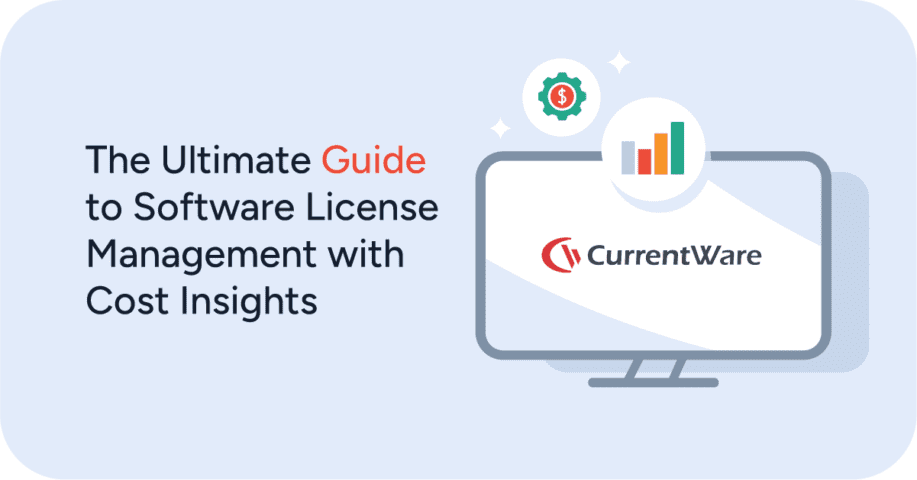How to Make a Work from Home Policy

A work from home policy is an essential remote workforce management tool. In this article, you will learn how to make a work-from-home policy for your employees. To get you started, this free work from home policy template is ready to be downloaded and tailored to your company’s needs.
Get Your FREE Work From Home Policy Template
- Define eligibility requirements for remote/hybrid work
- Communicate security, productivity, and schedule expectations
- Set acceptable use of company assets for WFH employees
Get started today—Download the FREE template and customize it to fit the needs of your organization.
Table of Contents
What To Include In Your Work From Home Policy
The best work from home policies clearly define how employees are expected to conduct themselves while they work remotely. Your policy should include references to relevant policies, procedures, and other internal support documents that your remote workers can refer to as they transition to working from home.
1) Eligibility Criteria – Who Can Work From Home?
Not all roles are compatible with remote work. You will need to establish a formal process that dictates what your employees must do to request a telecommuting arrangement. Each request you receive will need to be reviewed to ensure that the accommodation will not disrupt the continuity of your business.
Things to consider before allowing employees to work from home
- Is their role fully compatible with remote work? If not, are there at least some parts that they can do?
- How will their coworkers be impacted? Is collaboration possible in a remote environment?
- Under normal circumstances, do they need to meet face-to-face with clients? If so, is there a suitable space they can use? Your employees may not be comfortable having clients in their homes, and residential agreements might not allow them to use their homes for business meetings.
- Are there performance and tenure requirements they need to meet before they are allowed to work from home?
- Will your company support remote work as a usual perk or is it reserved for certain circumstances such as bad weather, mental health days, or pandemics?
- Will remote employees need to be within commutable distance of the office or can they work from anywhere in the world?
To facilitate the approval process you should determine who is responsible for reviewing and approving each employee’s request to work remotely. The most common decision makers for this are the immediate supervisor or manager of the employee and a representative from Human Resources.
You should also establish a consistent approval process. Will an email to their manager suffice or will they need to complete a telecommuting request document? How much notice is required in advance? Defining these requirements in advance will provide your employees an ample opportunity to request a remote work arrangement.
2) Performance Expectations for Remote Workers
Managing the productivity of a remote workforce is a unique challenge. Your work from home policy needs to clearly communicate the productivity, availability, and communication expectations you have for your remote employees.
Performance requirements when employees work from home
- Do they need to maintain normal working hours or can they work a flexible schedule?
- How responsive should they be to incoming emails and instant messages?
- If their productivity is low, can they potentially lose work-from-home privileges?
- How will non-exempt hourly employees track their work hours?
- If an hourly employee needs to work overtime, who should they reach out to for approval?
Establishing clear productivity guidelines ahead of time will ensure that your employees are aware of your company’s expectations when they work from home. Having these expectations detailed in your work-from-home policy will also provide a precedent for addressing any future productivity concerns.
3) Standards for Home Offices
Your employees need a suitable workspace to complete their duties when they work from home. While many remote workers enjoy having the flexibility to work from anywhere, a dedicated home office with similar amenities as their usual office space will make the work-from-home experience more pleasant.
Important considerations for a home office
- Will your employee’s home office need to offer a similar level of safety and security that the employee would receive at your company’s office?
- Will you or the health and safety committee need access to the employee’s home for safety inspections?
- Do your employees need to use company-provided devices or are they allowed to use their own computers? How will they receive technical support?
- Will your company be providing a stipend to cover home office expenses?
- Do they have a stable internet connection with sufficient bandwidth?
- Do they have a suitable webcam, headphones, and microphone for video calls?
- Do they need to work from a designated home office or can they work in a public space? Is it okay for them to risk using public WiFi or will they need a dedicated wireless hotspot?
Not all of these considerations will be completely necessary, but they go a long way to improving the quality of the remote work experience.
4) Cybersecurity Standards for Sensitive Data
The last thing your work from home policy needs to cover is the standards your company has for ensuring the security and confidentiality of sensitive data. If your employees need to access restricted data you will need to include a data loss prevention policy that addresses the unique security risks of remote work.
Elements for your remote data loss prevention policy
- What classifications of data are they allowed to access remotely?
- Will your company be monitoring the computer activity of employees that work from home?
- What data handling procedures are they expected to follow?
- Who should they notify if they suspect a possible data breach?
- What security software or tools are they expected to use (VPN, Antimalware, etc)?
Employees that need to access sensitive data when working from home will require more stringent user activity monitoring than roles that do not interact with sensitive data. Be certain to include an employee monitoring disclosure as part of your remote work policy if you will be using these tools.
How to Enforce Your Work From Home Policy
Having your policy in place is an excellent start. Now you need a plan to enforce it. In this video CurrentWare’s marketing coordinator Dale Strickland provides tips for writing and enforcing an acceptable use policy. These tips focus on employee internet usage policies but you can apply them to your work from home policy as well.
WFH Frequently Asked Questions
A remote work policy (work from home policy) is an agreement that communicates key expectations and responsibilities when employees work remotely. The policy outlines who is eligible to work from home, the employer’s expectations for remote employees, the resources the employer will provide, and the conditions required to work from home successfully.
Creating a work from home policy requires careful planning for each role in the company. You must consider whether the employee can work from home successfully, how the company can support remote workers, and what tools are available to make communication and collaboration with their colleagues feasible.
Remote employee monitoring software provides companies with greater visibility into the work habits of their employees when they work from home. With these tools you can track the computer usage habits of remote employees such as their internet activity, application usage, and the time they spend working.
Remote work is a working style that allows employees to work outside of a traditional office environment. Remote workers use internet-based collaboration tools such as project management platforms, instant messaging, video calls, and email to collaborate virtually with their coworkers.
Employees that work remotely often work from their homes but they may also work from coffee shops, coworking spaces, airports, or hotels. Remote employees can do their work from virtually anywhere that they can find a reliable internet connection.
Absolutely! In fact, the Work From Home Experience Survey from Global Workplace Analytics found that 76% of the employees they surveyed want to continue working from home. Their average preference is to work from home 2.5 days per week. Having a work from home policy makes the transition to a flexible working arrangement easier as you can clearly define which days employees are allowed to work off-site.
Work From Home Policy Template
Get Your FREE Work From Home Policy Template
- Define eligibility requirements for remote/hybrid work
- Communicate security, productivity, and schedule expectations
- Set acceptable use of company assets for WFH employees
Get started today—Download the FREE template and customize it to fit the needs of your organization.
Disclaimer: This template is for reference use only. It may not take into account all relevant laws of your jurisdiction and it shall not be considered a legal document. CurrentWare will not assume any legal liability that may arise from the use of this policy.
Work From Home Definitions
Remote work, working remotely, telework, or work-from-home is defined as any work arrangement that allows employees to work outside of their primary worksite at an alternate location at least one day a week, pursuant to an approved remote work agreement.
Personal device or employee-provided device is defined as any employee-owned device that is used for performing activities related to the employee’s role in the company.
Purpose of the Work From Home Policy
The purpose of this policy is to define the expectations and responsibilities of applicable parties throughout the span of a remote work arrangement. <<COMPANY>> (hereafter referred to as “the company” or “company”) provides remote work arrangements to employees in an effort to support a healthy workplace, improve work-life balance, maximize the effective use of office space, and support business continuity on an as-needed basis.
Remote Work Request & Approval Process
Meeting the criteria stated in this policy does not guarantee approval to work remotely. The approval of each remote work situation shall be made on a case-by-case basis at the discretion of management. The company reserves the right to approve or deny any remote work request at the discretion of the company and its representatives.
How to request a remote work arrangement:
- The employee requests a remote work arrangement through their immediate supervisor or manager
- The employee agrees to the work from home policy and submits it to their immediate supervisor or manager for approval
- The employee’s request is then submitted to a human resources representative from the company for final approval
Eligibility
The terms and conditions of employment, provisions of relevant collective agreements, as well as the application of existing company policies and related legislation will continue to apply when employees work remotely. Under typical operating circumstances the participation in the remote work program is voluntary.
Employees shall only be permitted to work remotely under the following conditions:
- The nature of the work to be performed at the remote location is operationally feasible
- The overall quality and quantity of work performed remains within company standards throughout the remote work arrangement
- The employee acknowledges that the remote work arrangement may be terminated at any time at the discretion of the company
- The employee agrees to adhere to all existing and future policies provided by the company throughout the duration of their remote work arrangement
- The employee acknowledges that failure to follow the company’s existing and future policies, rules and procedures may result in termination of the remote work arrangement and/or disciplinary action
Under unique circumstances (medical requirements, pandemics, inclement weather, etc) exceptions to these eligibility requirements may be made at the discretion of the employer.
Expectations of Employee When Working From Home
Personal Use
Unless otherwise agreed to, employees are expected to use company-provided supplies, equipment and electronic networks exclusively for the purposes of carrying out the employee’s work-related duties.
Technical Support
Support Requests. Remote employees are responsible for submitting technical support requests as soon as technical faults become apparent. Requests for support can be made through <<SUPPORT REQUEST PROCESS>>.
Personal Devices. Employees that wish to use a personal device for work purposes must receive written approval from a supervisor or manager and adhere to any relevant company policies surrounding the use of personal devices. The company will make every reasonable effort to provide business related technical support for approved personal devices, however, employees are ultimately responsible for the insurance, maintenance, and repair of personal equipment unless otherwise agreed to by the company.
Business Continuity. In the event that technical failures adversely impact the remote employee’s ability to perform their duties they may be required to perform work at a pre-approved working site such as the employer’s office or a designated co-working space. This determination will be made at the discretion of the employer.
Employee Monitoring
Employees that use equipment provided by the company may be subject to workplace monitoring and surveillance software. This may include but is not limited to software that tracks internet activity, application usage, the employee’s interactions with files, and time spent performing work-related tasks.
In the case of employees that have been approved to use employee-provided devices, their activity may be monitored when their personal devices are connected to the company intranet via a virtual private network (VPN).
Hours of Work & Availability
Unless arranged otherwise the employee is expected to maintain regularly scheduled work hours agreed upon by the employee and their supervisor. Employees that work remotely must be available during scheduled work hours by phone, e-mail and/or other specified methods of communication with their supervisor, co-workers, and any others with whom job-related communication is necessary.
Returning to the Office. There may be instances that the employee’s physical presence is deemed essential. For this reason employees that work remotely must be prepared to return to the office with a minimum of 24 hours’ notice at the discretion of the company.
Communication. Employees that work remotely will be expected to be available during normal working hours via company-approved communication tools. This may include, but is not limited to, instant messaging, email, and telephone services. All client meetings are to be conducted on a client or company site. Any exceptions require permission from a supervisor or manager.
Home Office Requirements
Employees that work remotely are expected to maintain a working space that meets the following minimum requirements:
- An internet connection with a minimum speed to support the employee’s essential job functions, as determined by the company
- A private internet connection with a unique password that is only used by known users (e.g. the employee’s family members)
- Equipment to support video conferencing including a webcam, headphones, and some form of audio input device
- A private workspace that is free from onlookers, including family members and other individuals that may share the living space
At the discretion of the company some or all of these elements may be provided by the company or otherwise subsidized via a remote working stipend.
Data Security & Confidentiality
Remote employees are expected to adhere to the same level of security and confidentiality as expected at other worksites used for the operation of the company. Remote employees agree to abide by all relevant security and confidentiality requirements outlined in other current company policies.
Data security & confidentiality guidelines:
- Confidential and sensitive data should not be saved on the local computer
- Restricted or confidential material shall not be accessed through an employee-owned device unless approved in advance by a supervisor or manager
- The remote employee is responsible to ensure that non-employees do not access company data in any form (printed, electronic, etc.)
Compensation and Benefits
The conditions of employment for employees that work remotely shall remain the same as for non-remote employees; wages, benefits and leave accrual will remain unchanged unless there is a change in employment status or scheduled hours that impact benefit eligibility.
Time Tracking. Non-exempt employees that are compensated on an hourly basis must adhere to the company’s time tracking policies. Requests to work overtime require the explicit approval of the employee’s manager.
Stipends. Employees that work remotely may be provided with a stipend to assist with costs associated with working remotely. The amount provided and the expenses covered are at the discretion of the company and any relevant legislation.
Acknowledgement
I have read, fully understand, and accept the terms and conditions described in this document. I understand that by signing this document I am acknowledging that I agree with all the expectations, duties, obligations, and responsibilities discussed in the document.
Employee Name
Employee Signature
Supervisor Name
Supervisor Signature
HR Contact Name
HR Contact Signature
[sc name=”work-from-home-policy-template” ]
Other Resources
- Internet Usage Policy Template (Downloadable Template)
- 5 Ways to Enforce Your Acceptable Use Policy (Article)
- The Benefits of a Remote Workforce (Infographic)


